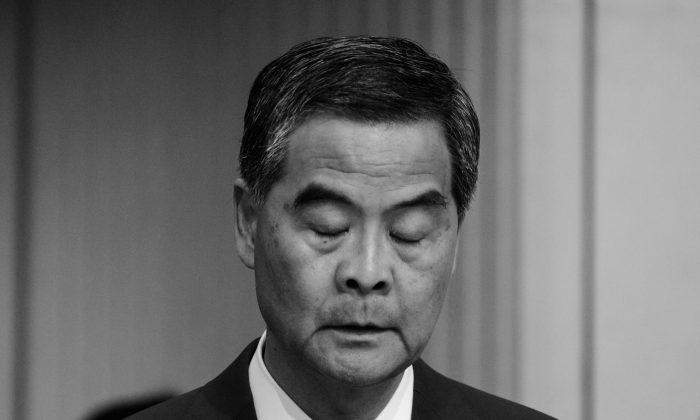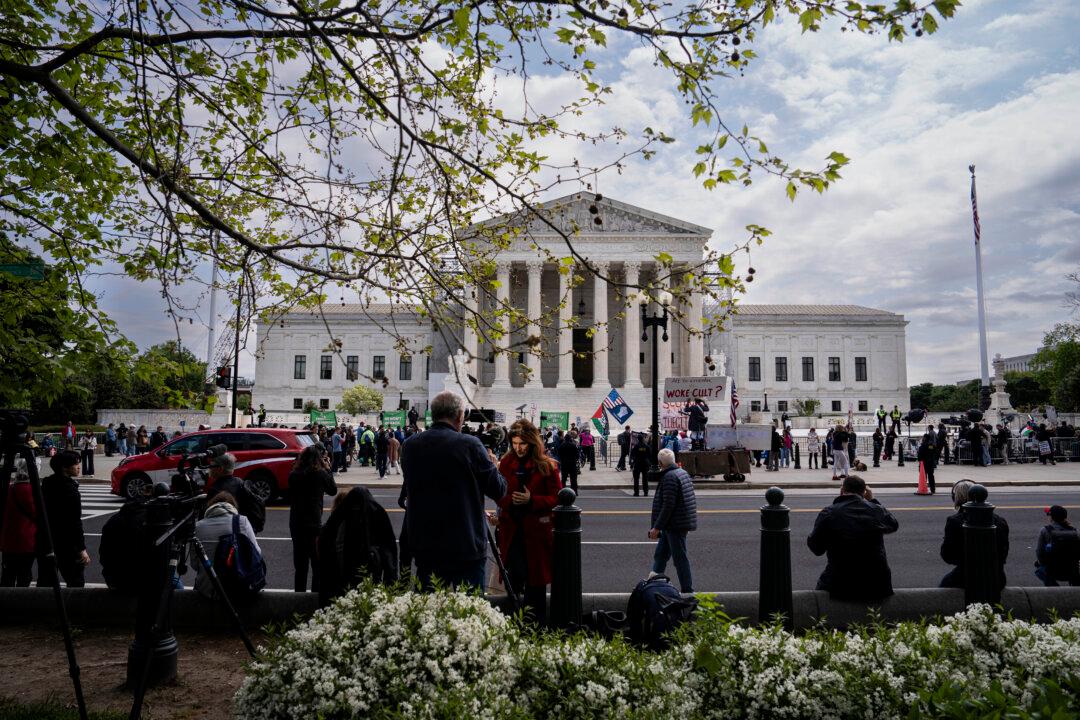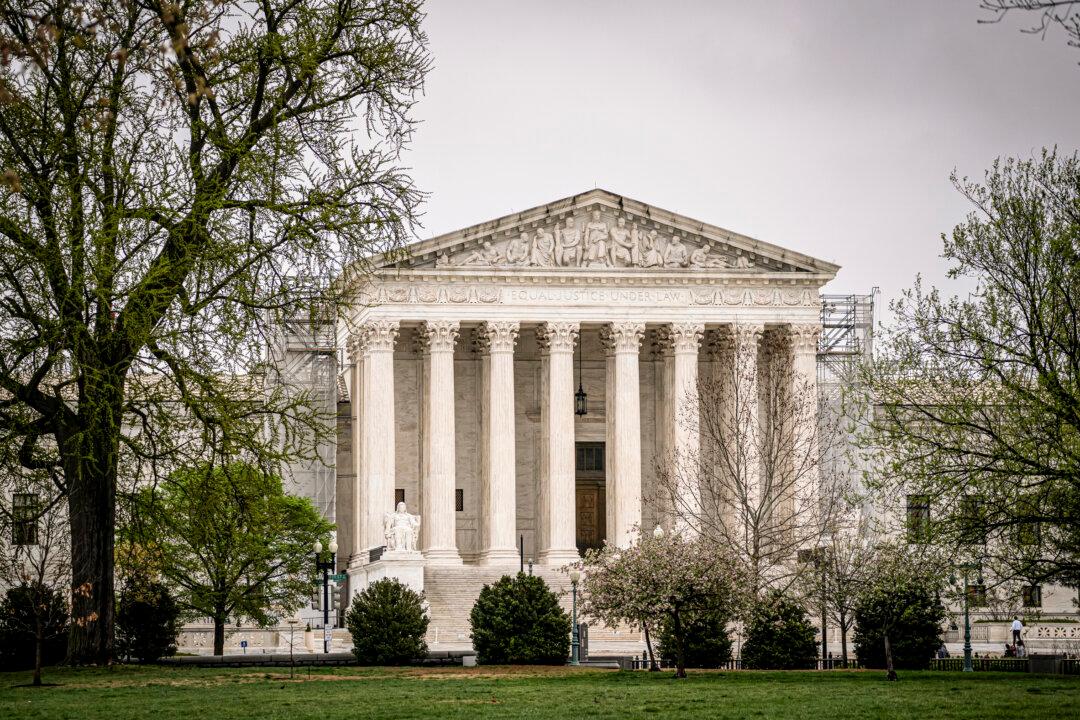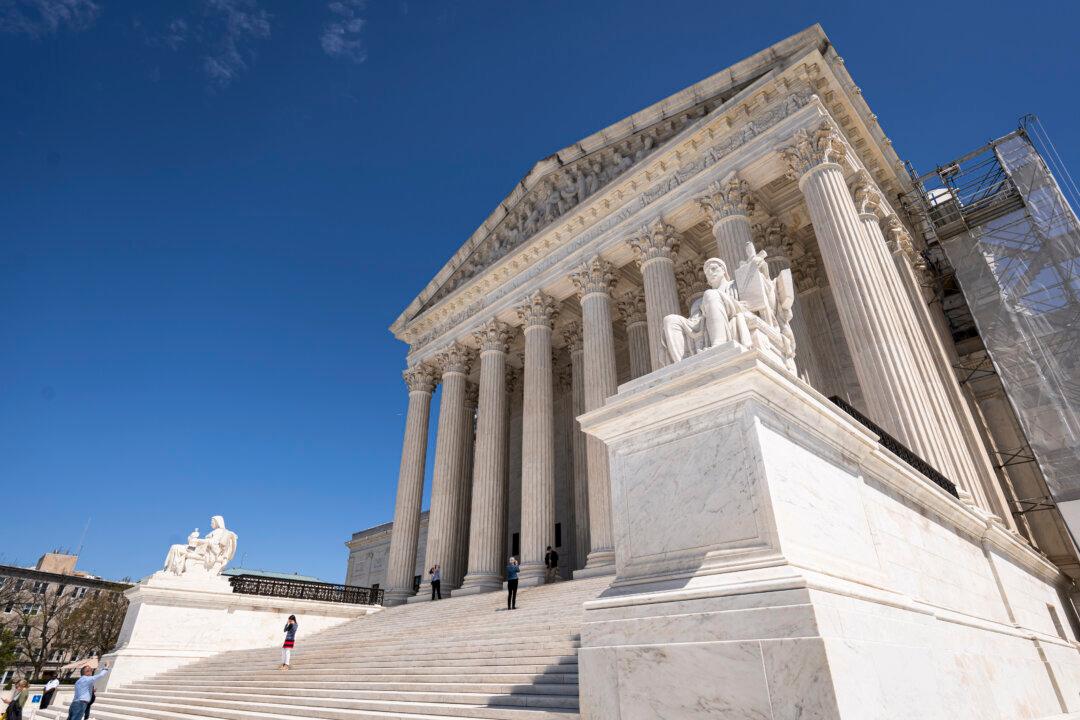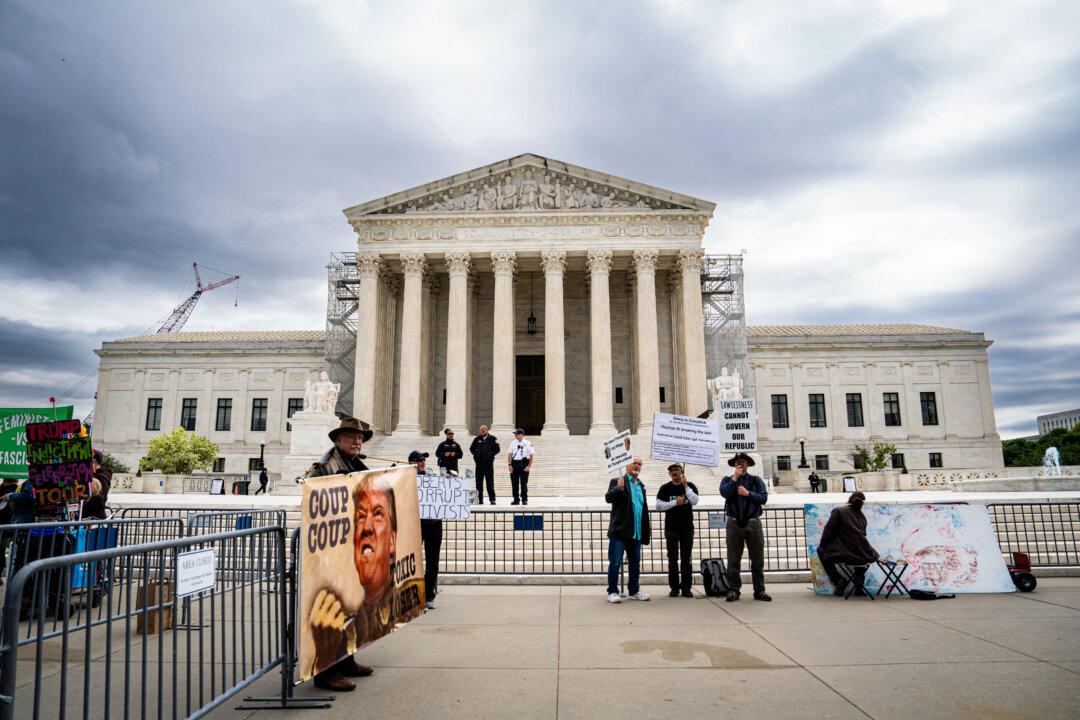Back in November, this newspaper anticipated the political downfall of outgoing Hong Kong chief executive Leung Chun-ying.
We wrote that Leung, a deeply loathed figure in Hong Kong, would be prevented by Beijing from running for a customary second term as Hong Kong leader because he fractured Hong Kong society and abused his authority during his tenure.
In fact, Beijing now appears to be looking to “deal with” Leung, who is currently being investigated by Hong Kong’s anti-corruption body for illegally accepting payments for private work as a government official.
The first half of our prediction has come to pass. In December, Leung shocked most observers by announcing that he wouldn’t be seeking reelection. But Leung didn’t appear to be politically finished, at least at a glance.
Hong Kong media have been reporting that Leung would likely be made a vice chairman in the Chinese People’s Political Consultative Conference (CPPCC), the Chinese regime’s top advisory body, at the close of a key political conclave in March. Several CPPCC officials have suggested that Beijing would be “rewarding” Leung with an elder statesman role (Tung Chee-hwa, the first Hong Kong chief executive, is currently a CPPCC vice chair) for a job well done.
Yet the CPPCC, under Politburo Standing Committee member Yu Zhengsheng, has acquired the reputation of being a holding room of sorts for sidelined Chinese officials before they are eventually investigated and prosecuted.
Most prominently, Ling Jihua and Su Rong, two disgraced elite officials frequently singled out by Chinese leader Xi Jinping as examples of cadres who conspired to “wreck and split” the Communist Party, were purged within about a year of being appointed to the position of CPPCC vice chairman.
“The idea is not to sweep the grass and scare the snakes,” said veteran Hong Kong journalist Ching Cheong, using a Chinese idiom for not prematurely alarming one’s enemies, in his analysis of why Beijing wants Leung in the top advisory body.
In any event, Leung must be keenly aware that holding a new office doesn’t mean he’s automatically out of the woods, for two reasons.
First, Donald Tsang, Leung’s immediate predecessor, was recently found guilty of corruption and sentenced to 20 months in jail, after a lengthy investigation. Leung is also being accused of corruption.
Second, Leung’s political backer, Politburo Standing Committee member Zhang Dejiang, appears to be headed for trouble. Sing Pao, a pro-Beijing Hong Kong newspaper that appears to be controlled by Xi Jinping, has recently been highly critical of Zhang’s efforts at promoting Leung’s former top aide Carrie Lam as Beijing’s only choice for Hong Kong leader.
Also this January, a Chinese official with channels to a close relation of Xi told Epoch Times that Xi has made plans to probe Zhang Dejiang, Zhang Gaoli, and Liu Yunshan, three Politburo Standing Committee members who are part of a rival political faction helmed by former Chinese leader Jiang Zemin. If this comes to pass, it would be a major change in the Chinese regime.
Leung’s possible new post may look cushy, but it doesn’t augur well.
—Larry Ong
